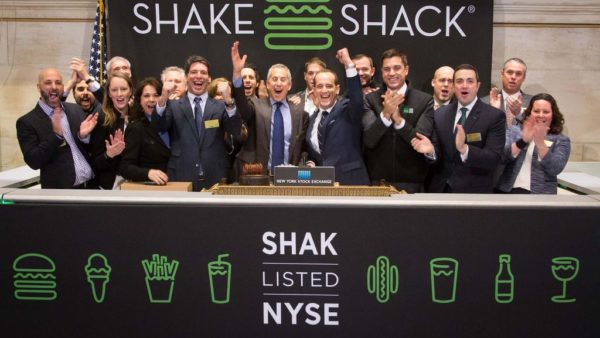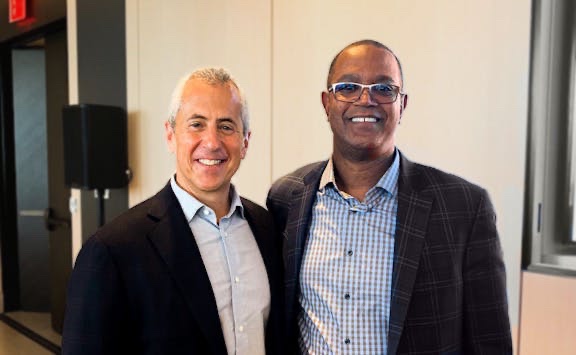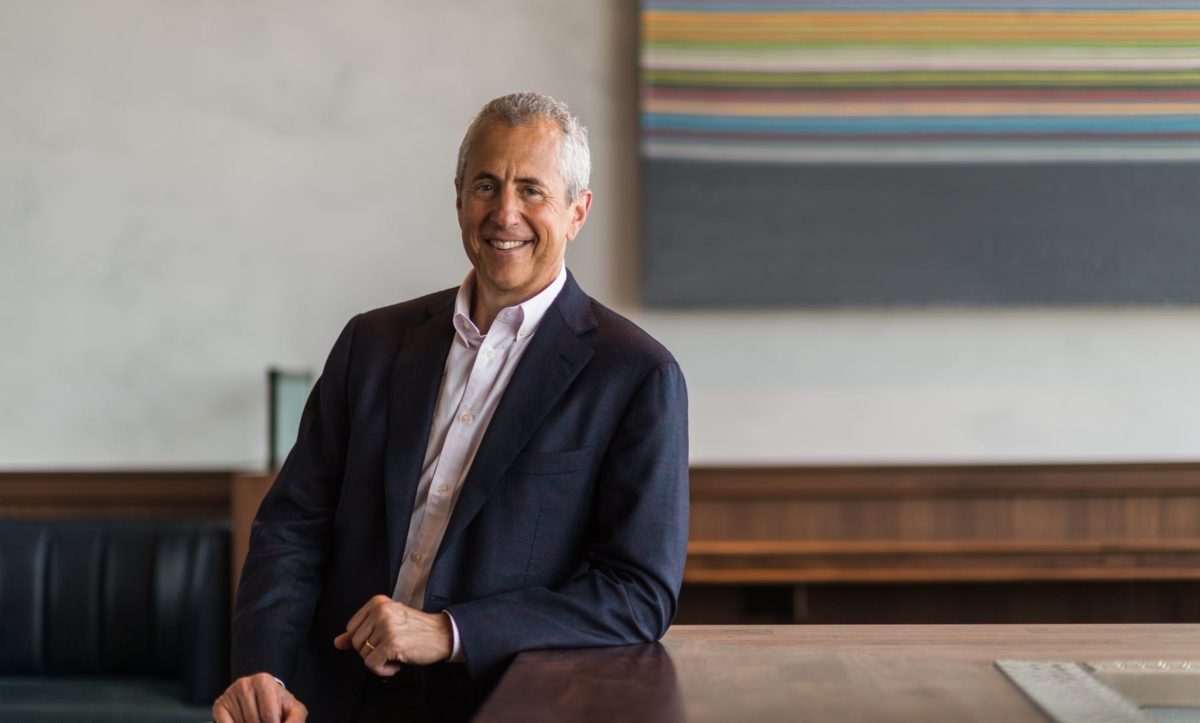Danny Meyer will always have a place in the canon of hospitality visionaries, an ambassador of the transformative power of serving people food. Given his stature, it came as a shock when over 200 current and former employees co-signed a letter expressing their disdain with his company’s muted response to the Black Lives Matter movement. According to Eater, the letter also condemned the Union Square Hospitality Group for its failure to address systemic racism within the company and demanded a reexamination of its flawed diversity programs.
With dramatic changes on the horizon surrounding how restaurants administer hospitality in the wake of the Coronavirus pandemic, it’s the perfect time to address racial issues that plague the industry and to ask ourselves why we look to white restaurant owners like Meyer for answers. It’s clear from recent events that what happens behind the scenes in Danny’s restaurants isn’t always worthy of his bulletproof reputation.
His templates for team building have been widely imitated. Accomodating service has always been centered in his purview to ensure staff and guests are treated like stakeholders in his business. Danny developed a style he called “enlightened hospitality,” a rejoinder to the cool-handed approach of most New York City restaurants in the mid-80s. Following the success of several white tablecloth restaurants like Union Square Cafe and Gramercy Tavern, he was able to parlay the folksy comforts of his brand into a fast-casual empire with Shake Shack, turning a humble kiosk in Madison Square Park into a multinational corporation. Enlightened hospitality now came with a side of fries.

USHG has expanded over the past thirty plus years, and the diaspora of its former employees has populated almost every major city in the country. Danny’s methods have a proven track record of success, so it’s understandable that his disciples faithfully adapt and implement the USHG playbook to suit their new habitats.
While this may have been a positive development as the hospitality industry matured, it’s also led to a whitewashing of how the industry defines what constitutes good service and a myopic approach to satisfying guests. As the restaurant world grapples with its checkered past with respect to racial diversity and gender equity, it may be overdue to ask ourselves if we’ve outgrown Danny’s philosophies.
In the first chapter of his book Setting The Table, he describes childhood trips to various cities in Europe and credits the hospitality he encountered there as a major influence on his business strategy. It’s hard to ignore that Danny cites primarily white, European cultures as the foundational influences on his brand. Almost all of his restaurants are formulated around cuisine, design elements and service anchored in European traditions. Perhaps like many white Americans with ambiguous ethnicities, Danny set out to Europe as a young man to find culture he could identify with. Certainly, his aesthetic as a restaurant owner would’ve evolved differently had he travelled to places like Vietnam or Senegal.
Tabla, which closed in 2010, was the only USHG restaurant that wasn’t rooted in Western traditions. Under the capable stewardship of the late Chef Floyd Cardoz, the restaurant prided itself on eschewing tradition by taking a more free-spirited approach to Indian cuisine. Of course the restaurant landscape was much different then, but Danny still proudly admits that prior to opening Tabla he set out to improve upon the idea of a “traditional” Indian restaurant. Stripping it of the hallmarks that he associated with Indian restaurant experiences became integral to developing a concept that he thought would be more welcoming. Through the prism of 2020 where the notion of accessibility equates to marginalizing non-white cuisine, we can now translate Danny’s intentions: He didn’t want to scare away white guests with something “too Indian.”
In the Danny Meyer orbit, the restaurant’s role in delivering enlightened hospitality centers around helping guests leave the tensions of the world behind. But against the background of social upheaval in office suites, outside capitol buildings and on the streets throughout the country, we should expect more from restaurants than just to provide an escape.
As we work to rebuild our industry’s crumbled foundation, we need guests to start thinking of themselves as partners in the reclamation process instead of beneficiaries. A brand of service that prioritizes comfort isn’t worth championing at a time when being comfortable makes you part of the problem. Nobody goes to a Danny Meyer restaurant to be challenged. In fact, Danny seems to go out of his way to make your dining experiences frictionless.
Restaurateurs like Meyer have perpetuated an ideology of service as a selfless act that brings as much joy to the provider as it does the recipient. Meyer apostles like Will Guidara have concocted entire symposiums around this brand of Aw, Shucks hospitality—forums where only true believers in the evangelical power of service may bear witness. The echo chamber that exists in these spheres drowns out the alternate perspectives that should be leading the revival.

A little dose of skepticism about our self-sacrifice might be a healthy antidote to the unicorn beliefs about service that’ve been peddled to this generation of foodies and to the growing stable of dedicated restaurant professionals. We don’t need hospitality conferences, we need better conditions and better pay for the people who work in the industry. We shouldn’t have to consume ourselves with making everyone’s restaurant experiences soigné when they’re not wearing masks and we don’t have health insurance.
Meyer apologized for his sluggish response to the BLM protests and said he felt “frozen” seeing the community going through so much trauma. With all due respect to his achievements, maybe he felt paralyzed because he knows he isn’t the right person to lead the industry forward right now. Even Danny himself might agree that Black Lives Matter demands that the industry recruit new thought leaders who better reflect the promise of a more diverse workforce and give voice to underrepresented people in our communities. He assures us that he’ll scour the earth to find those people, even though his track record over thirty years suggests otherwise.
Meanwhile Black chefs around the country struggle to get the attention they deserve. Chef Omar Tate in Philadelphia, through his thought-provoking pop-up restaurant, Honeysuckle, is using his platform to challenge guests, serving delicious food that often provokes discomfort by reflecting complicated cultural narratives. Atlanta Chef Deborah VanTrece implemented a “pay what you can” takeout system during the pandemic at her restaurant, Twisted Soul, for customers facing economic hardships wrought by the pandemic. In New Orleans, Nigerian-born Chef Tunde Wey has created dining experiences that continue to explore the politics of food—labeled by some as culinary performance art—meant to expose societal ills inexorably linked to race like gentrification.
The following passage in Brett Martin’s profile of Wey in GQ Magazine is particularly revealing of his thinking about the function of hospitality:
“Of course there should be places where dining is simple pleasure, where food is respite and solace. The problem is that we have too many spaces where food is just that. We need spaces where we can eat and not think about shit, but if all your spaces are spaces where you eat and don’t think about shit, then you’re never thinking about shit!”
GQ Magazine, March 9, 2019
Part of what makes the work of these chefs so important right now—besides calling more attention to minority voices—is the way they’re forcing the establishment to reimagine a new paradigm of what restaurant service should deliver.
There’s always been a false narrative that USHG is a restaurant utopia. In 2015, Meyer made news as one of the first restaurateurs to introduce a “hospitality included” service model that eliminated tipping. The food media swooned. Finally someone had the courage to challenge the status quo and fix the system. In reality, the transition was fraught. While it may have resolved some pay disparities, it also resulted in tenured staff leaving “in droves” after many saw meaningful decreases in their incomes. As it turned out, reforming the tipping system would require more than Danny planting his magic beans.
Meanwhile, many independent restaurateurs—like Amanda Cohen of Dirt Candy in NYC and Eric Rivera of Addo in Seattle—have been implementing “no tipping” policies with better results and less recognition. Rivera, an outspoken critic of the passive responses of many industry leaders to the COVID-19 crisis, lamented on Twitter that “There are only a few voices that are allowed to be heard in this industry.” Rivera recognizes that we need to stop looking to these white father figures in the restaurant world like Danny Meyer to solve our diversity problems.
We can rest assured that after this scathing rebuke from his staff, Danny will redouble his efforts to hire more people of color. That isn’t a bad thing. Danny writes in Setting The Table, “To this day, my surest form of motivation comes from someone telling me I’m not measuring up.” Unfortunately, this challenge is not a measurable achievement like increasing revenues or controlling costs. Solving it will require more than bold statements on social media or photo-ops with the latest minority hires. A fresh coat of paint isn’t enough; this time someone needs to take a hammer to the layers of old rotten plaster.
A former senior level manager within USHG told me, “What we’ve seen is a failure of leadership to create and maintain a strategically progressive and proactive organization and leadership team.” To hasten meaningful progress, we need a new generation of leaders. If we leave it to the same white restaurateurs like Danny to address the problem without demanding institutional change, the quantity of jobs for people of color may rise, but those individuals will still be subsumed by appropriation and tokenization. The only way to bring about real change is to empower those with lived experience to show us the light. It’s time for someone else to set the table. If Danny really wants to help, he should do the dishes.


Black people do not like to wait on white people. I’ve been in restaurants my entire life, mostly as the hiring GM or owner in major cities on both coasts. I’ve had at most 10 Black colleagues in FOH/BOH combined.They are not applying for the jobs. Take that to the bank. WHITE people don’t like waiting on white people most of the time. And forget about the mostly abusive Massa dynamic in the kitchen, typically headed by a white male. Good for you for writing about what everyone knows. Put more teeth in your essays and call the situation out… Read more »
It is a shame that Danny Meyer is not perfect. Having said that, Danny is an outstanding human being and this piece completely fails to properly weigh the totality of Danny’s career and intentions. While there are certainly important points aired in this piece, the attack on Danny is little more than a cheap shot.
“to ask ourselves why we look to white restaurant owners like Meyer for answers.” “Rivera recognizes that we need to stop looking to these white father figures in the restaurant world like Danny Meyer to solve our diversity problems.” The goal of complaining is to keep everything the same. You have done more for the status quo than against it. This article should have been written to lift up and shine a light on Chef’s Omar Tate, Deborah VanTrece, Tunde Wey and Brett Martin. Their message and actions should be the headline, but you cast them as bit players and… Read more »
[…] be honest—fine dining caters to a white audience. It’s always has been a safe space for white people to celebrate their privilege. That’s probably why so many Karens are going apeshit when they’re […]
[…] Sommeliers was a haven for misogyny and harassment against its female members. Even the venerable Danny Meyer—the Zeus of hospitality—was called out by his employees for failing to follow through with […]
“Nobody goes to a Danny Meyer restaurant to be challenged.”
Nobody goes to any restaurant to “be challenged.” What kind of drivel is that? Why do you have to tear down people who are trying to do good to make your point? Be the change, stop looking at the success of others as a threat.